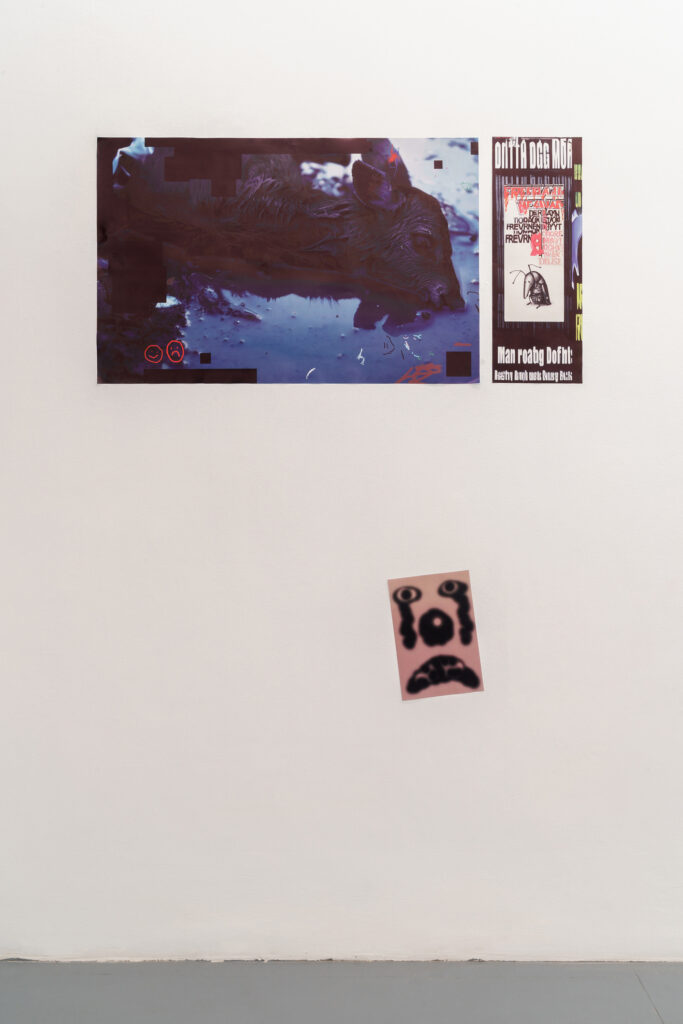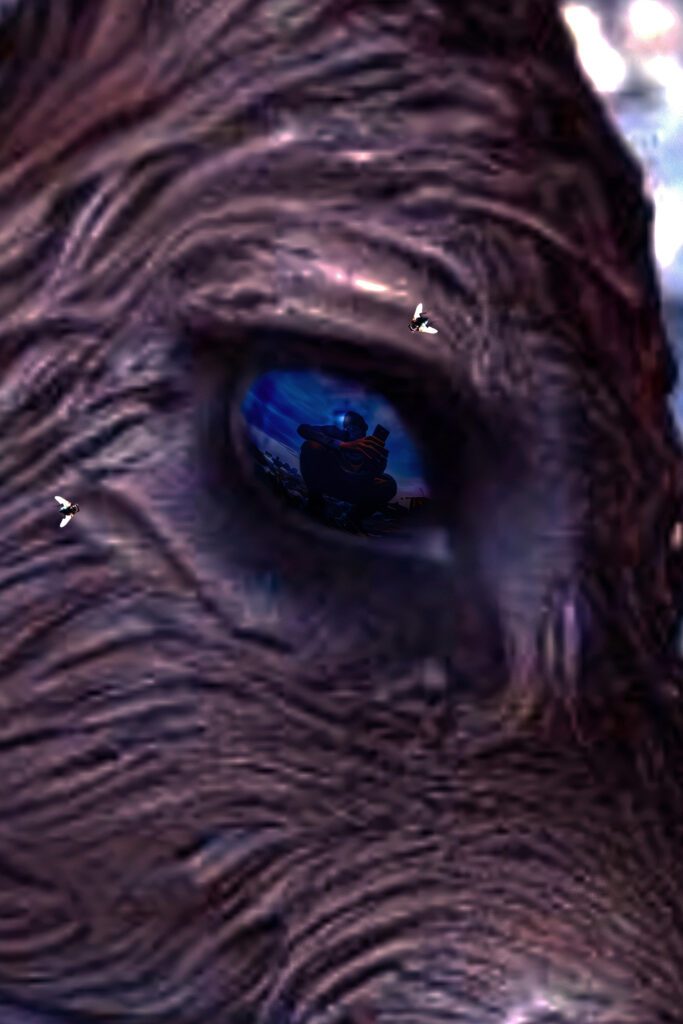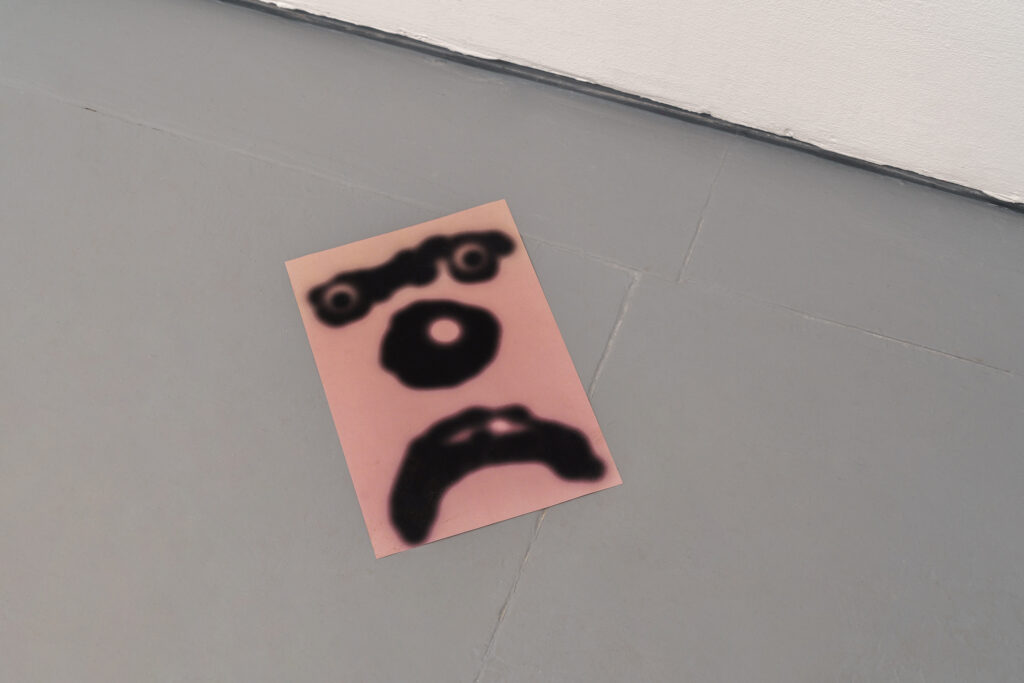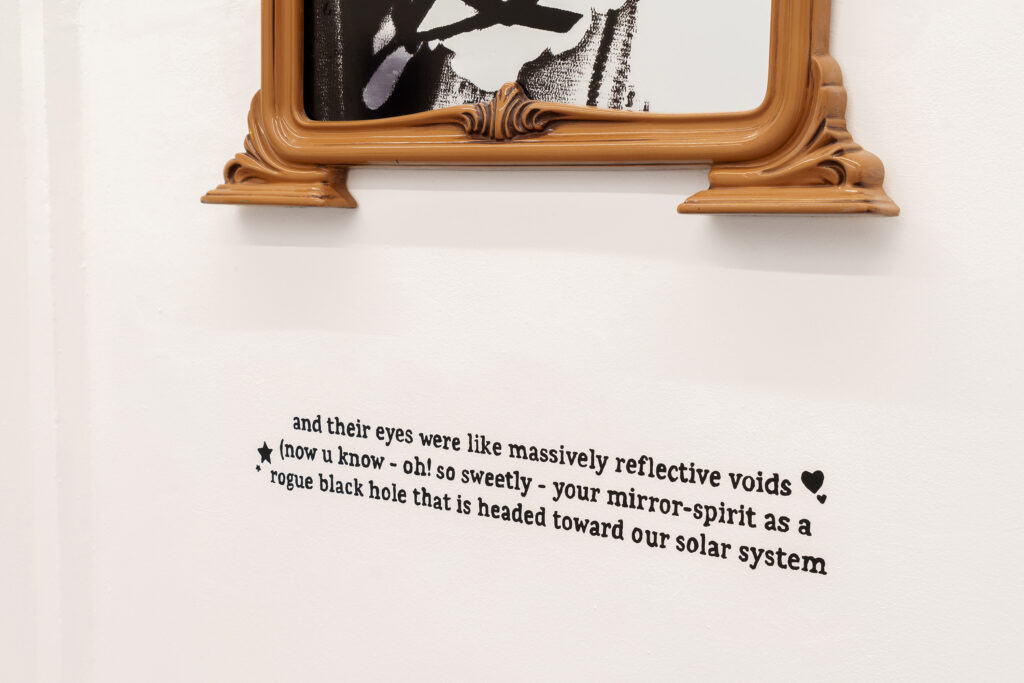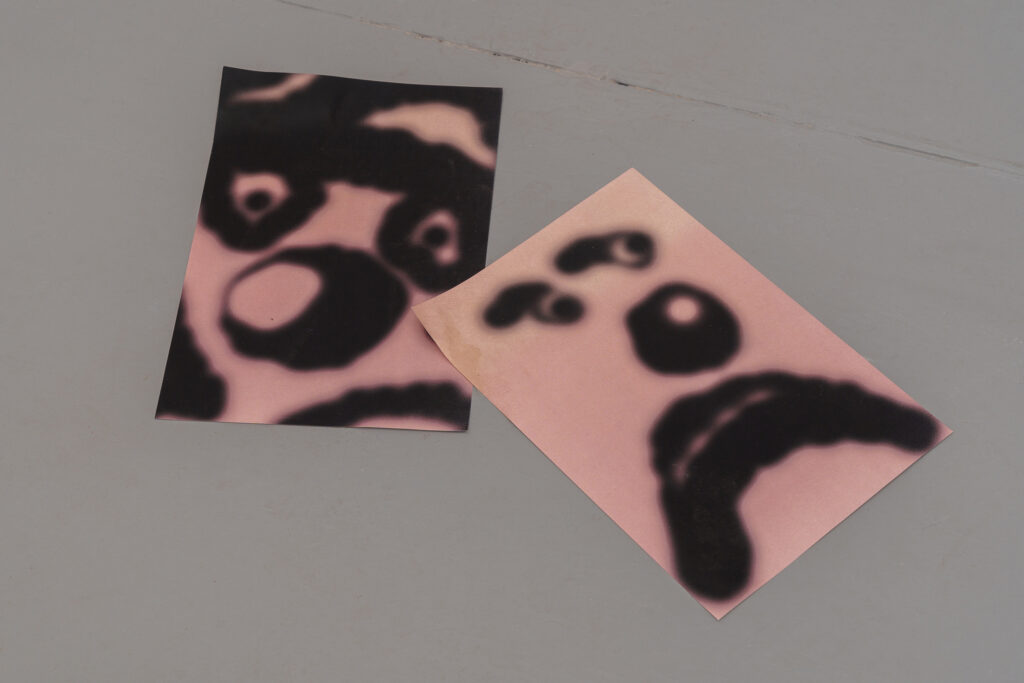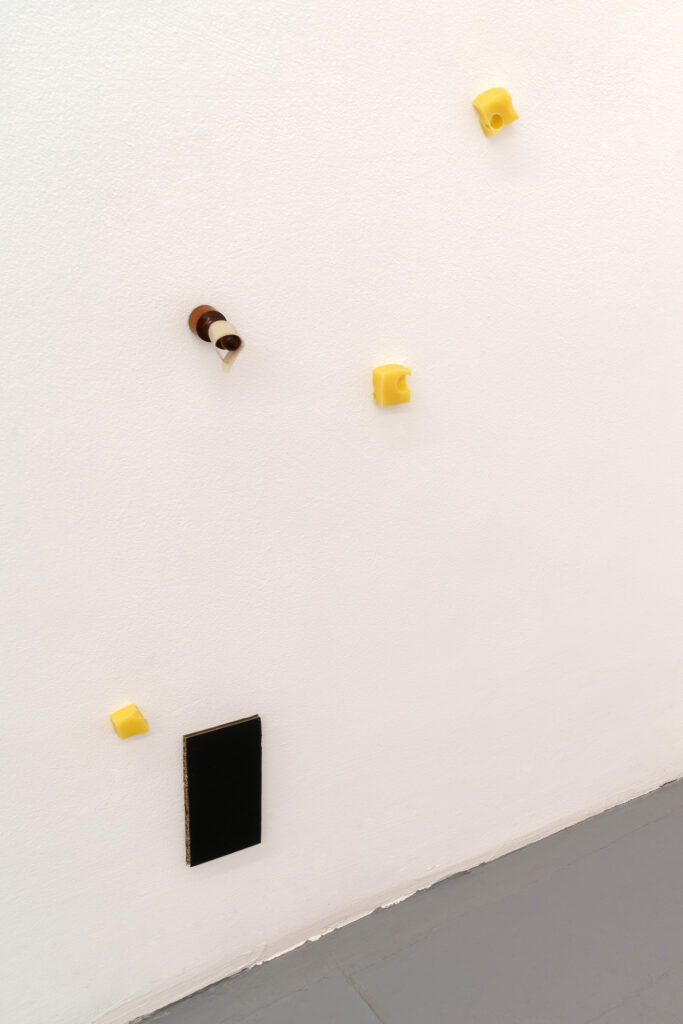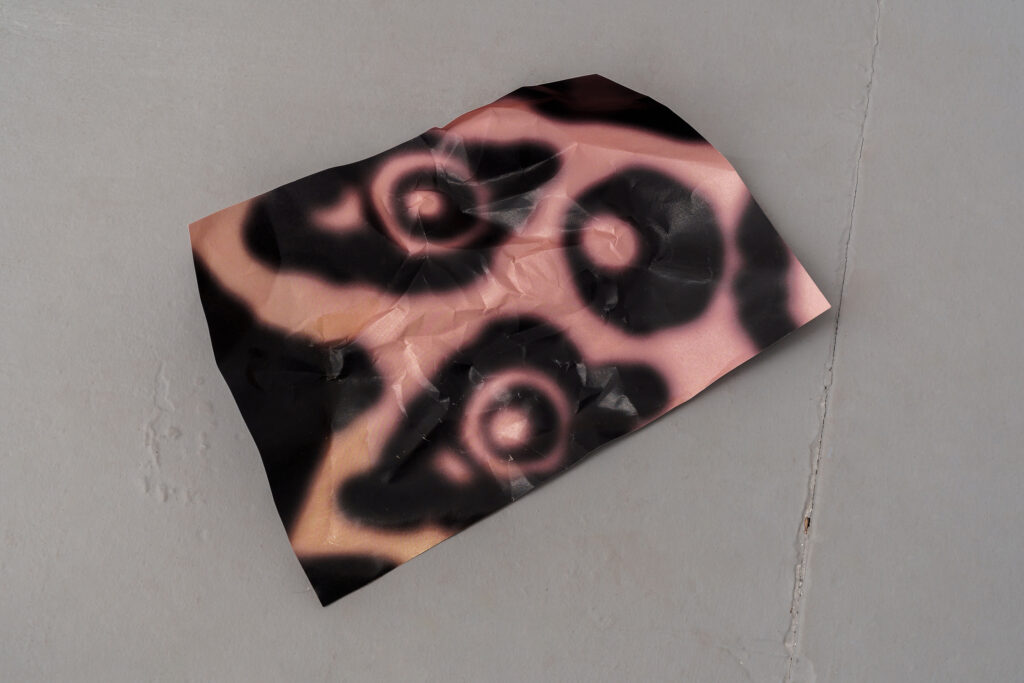
Funny / Sad, group show by Ian Bruner, Don Elektro, Halo, curated by Rhizome Parking Garage at Plague Space, Krasnodar, Russia, 2023
Exhibition title: Funny / Sad
Dates: 14.10 — 11.11.2023
Artist: Ian Bruner, Don Elektro, Halo
Curator: Rhizome Parking Garage
Venue: Plague Space, Krasnodar, Russia
Photo: Angelina Venmer
– In the false society laughter is a disease which has attacked happiness and is drawing it into its worthless totality. To laugh at something is always to deride it, and the life which, according to Bergson, in laughter breaks through the barrier, is actually an invading barbaric life, self-assertion prepared to parade its liberation from any scruple when the social occasion arises. Such a laughing audience is a parody of humanity. (141) Adorno
Imprisoned or cloistered within the liquid amber of vectoral control, laughter’s dialectic flattens out into yet another data point, to be archived, packaged, and sold, in obscured transactions, that remain unknowable to the laugher. The vector abolishes both interiority and exteriority, an entanglement seemingly without the possibility of escape, a collapse of freedom into its opposite, that of, pure identity. Without access to an outside, both in the classical sense imposed by capitalism, and within the inexorability of vectoral society, the question of laughter’s ability to be reconciliatory appears likely impossible. Yet still somehow we must go on laughing in this sadness, and perhaps become in moments non-Identical to ourselves, transforming into the clown. The clown who operates through a rejection of instrumentalized rationality, who in their parody and absurdity open a space of fleeting non-reification.
Algorithmic logic operates through functionalities that establish homogenized forms of pure identity, and equivalence. To operate (which is to be operated on) within the parameters of vectoral-society a coercive submission to algorithmic logic must be succeeded by an unquestioned nakedness, to be stripped by reason, and forced into pornograhpic stances. A forced dissolution through the equivalence of interiority and exteriority. All direction is replaced by a rhizome of incomprehensibility, divided by an asymmetrical power. Terms and conditions that without acceptance (which is now a form of non-acceptance) morph into resistance and void.
The labyrinthine psychological structures built into the network and its apparatuses, nudge, direct, predict, and monitor, our movements, emotions, and thoughts. Laughter does not lay outside this.
Nothing seems to be viewable past the glaring walls of the culture industry which is now teethed with data, and flows from within. The separation between ideology, and reality has long since eroded, and pressed tightly within in this confinement, we are numbed without feeling or thought. In the absence of autonomy vectorial control spreads and covers, replacing sensation with tantalization.
The tantalus laughing is not acting out of a spontaneous self-circulatory catharsis, nor is there access to anything outside of the capitalist and vectoral structures. The tantalus laughing does so in relation to the structures of social-order, an order that is contradictory, and not wholly graspable. Which according to Adorno gives laughter an indeterminable and dialectic ability. The terms of wrong laughter and reconciliatory laughter do not imply a binary but rather ways in which power is affected. However, Adorno could not have anticipated vectoral-society and its level of extractive control, of which no behavior, emotion, thought or action is free. Laughter loses its possible revolutionary substance when the subject is rendered into a tantalus, interfaced, and without movement.
Wrong laughter is a spectrum, and often resembles reconciliatory laughter.
A scene described in “Racecraft: the soul of inequality in America.” by Barbara J. Fields and Karen Fields, shows a perfect example of how wrong laughter mimics that of reconciliatory laughter. The story is about two boys who are playing together, at a point the two boys go up to the adults and say look we are twins, at this the adults say it can’t be possible for one boy is white and the other black, to which the white boy replies that his friend is not black, but rather his friend is brown. This statement causes the adults to laugh, the laughter would seem spontaneous and attributed by the adults, as a laughter celebrating the innocence of children and congratulating that they are raising children who are thoughtful, and not racist. However, the laughter of the adults reinscribes racism , and therefore race, and confirms to the boys that they are fundamentally different due to the coloration of their skin, and binaries such as black, and white, are undeniable truths.
On the opposite end of the spectrum of wrong laughter is the laughter such as officer Daniel Auderer’s laughter, at the death of Jaagnavi Kandula, when she was hit by another officer driving a squad car. Auderer laughter is laughter resonated from an actor of pure identity. Poisoned by individuation Auderer cannot understand the impossibility of his stance, as it is turned in against him, and he is already dead. His laughter mimics reconciliation, as he laughs thinking he has escaped the logic of political correctness, and mortality, as if his laughter originates outside of the social order, as if he is free of the other. Unaware that his laughter has negated his egress, for Auderer’s laughter further forces his eyes to seal over and over and over.
The medical bath of fun so long ago manufactured by the culture industry now remains infused to every degree imaginable, and the river that imprisoned flows from within. The most lucrative companies have established chief happiness officers, tasked with keeping employees happy, as it is now known a happier worker is 12% more productive, and the estimated cost of “illness and absenteeism” is around 5 billion. With this in mind and the coming age of ubiquitous computing, facial tracking, and artificial intelligence, laughter’s usefulness will gather mass and meaning. As a result of pan-data collection and analysis, emotions have become externalized and mapped, cut into micro-phenomenon and detached from the feeler. Extracted psychological functions, human behavior and emotional phenomena, act the way deep sea animals do when brought to the surface, the cells rupture. In this breakdown a vacuum is created, and replaced by a new structure organized in vectoral lines.
The behavior surplus is often touted as a positive benefit of vectoral society, enhancing experience and satisfaction. The self-fulfilling subject is both a prudent and industrious actor of the social-order, and in their complicity, and resolution, are reaffirmed of their good quality under law and market, they therefore feel confident that their nakedness portrays nothing they are unwilling to show. And even those unwilling are subject to the same procedure in accordance with the vector. All users must submit. Vectoral dominance of the dividual is not only subjectgation of body, and mind but of choice and futures.
The clown offers a possibility of creating fleeting moments of non-refined, non-instrumental action and feeling. Due to the clown’s rejection of the status-quo and it’s foundation of extractive rationality, the clown has the ability to reverse the contradictions back onto the system that remains whole within its dissimilarities. This moment, or action, or emotion, is fleeting, and cannot resolve the issues that it arises. Of course as Adorno has already stated “Philosophy is the most serious of things, but then again it is not all that serious”, and which is what give’s philosophy its clownish aspects and therefore it’s very essence. The clown negates identity, and therefore, negates the logic of individuation, which is the needed element to be intertwined within the vector. In the non-identity of the clown, we can find the embodiment of reconciliation, by removing the gap between the self and the object, the clown momentarily creates a unity. This however is not a sustainable solution and there are no actions an individual can enact to become a self fulfilling subject, as the implication of a “self fulfilling” subject is part of what makes the subject subjugated, and tethered to, the asymmetries of power.






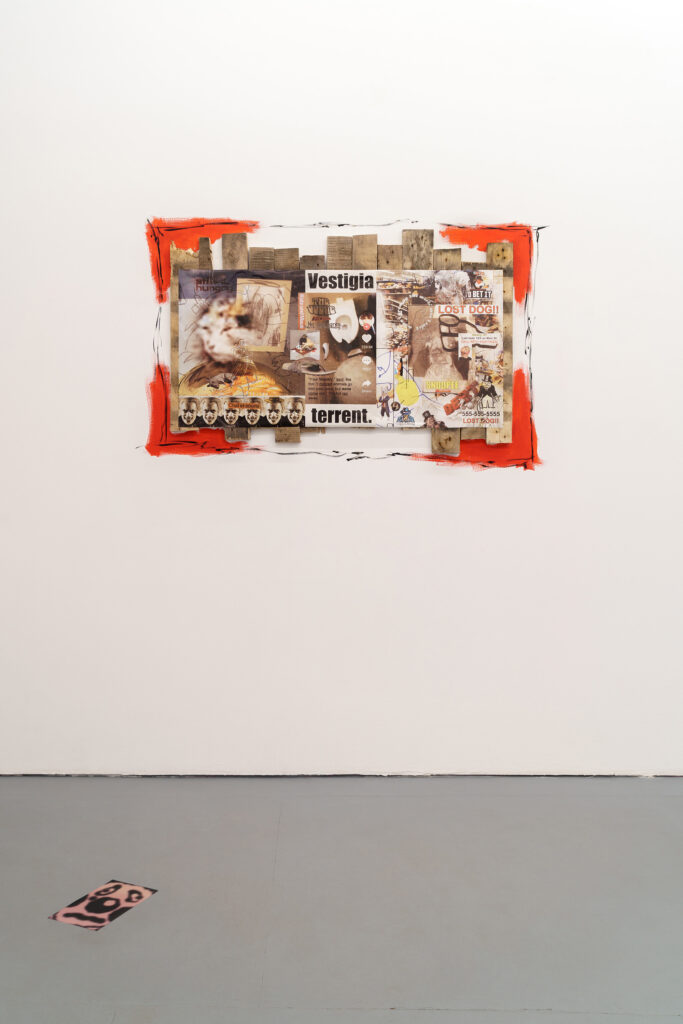
print on paper, 80 x 135 cm
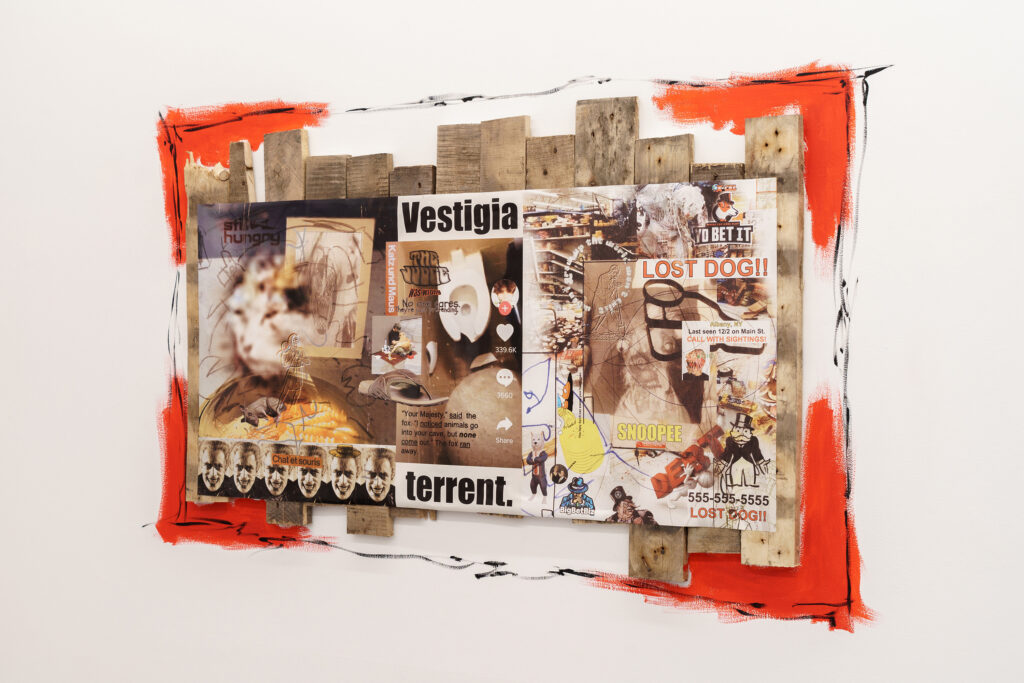
print on paper, 80 x 135 cm

print on paper, 80 x 135 cm (Details)

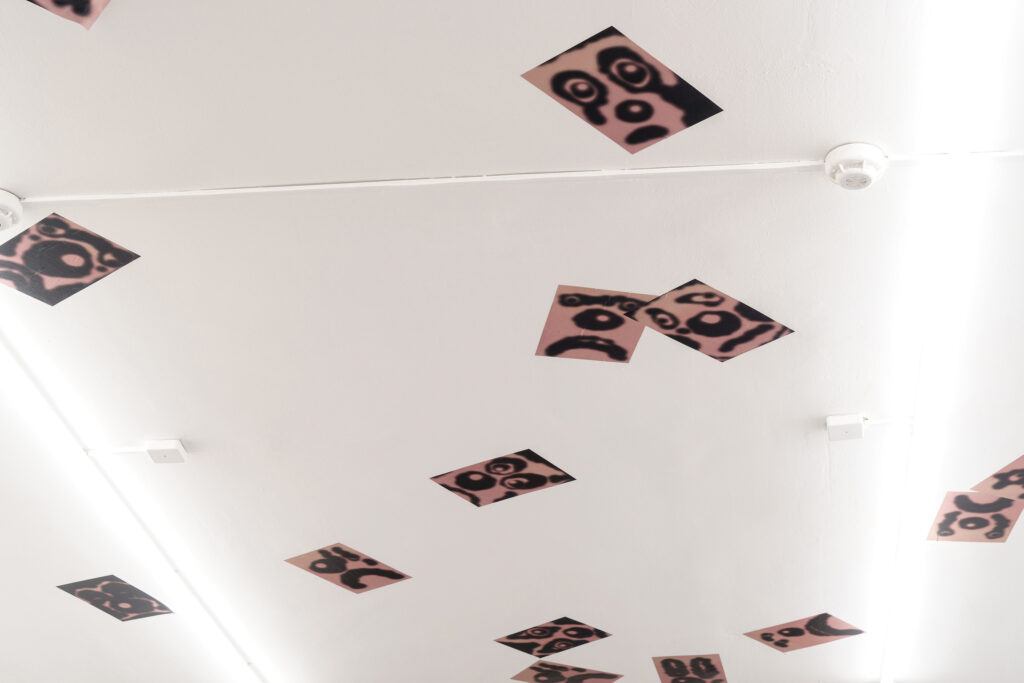

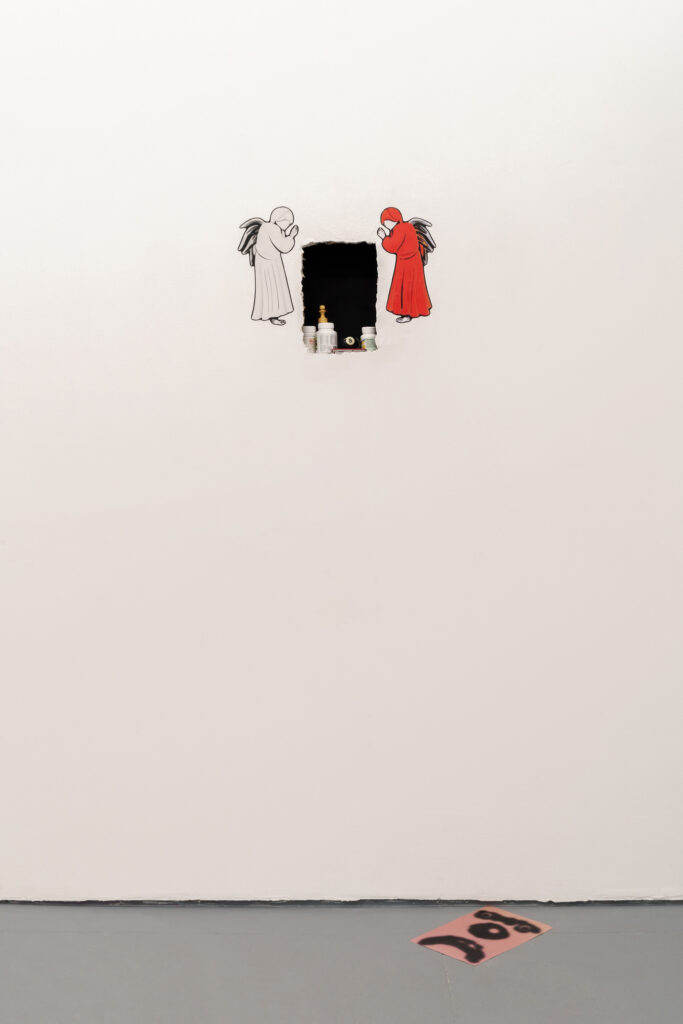
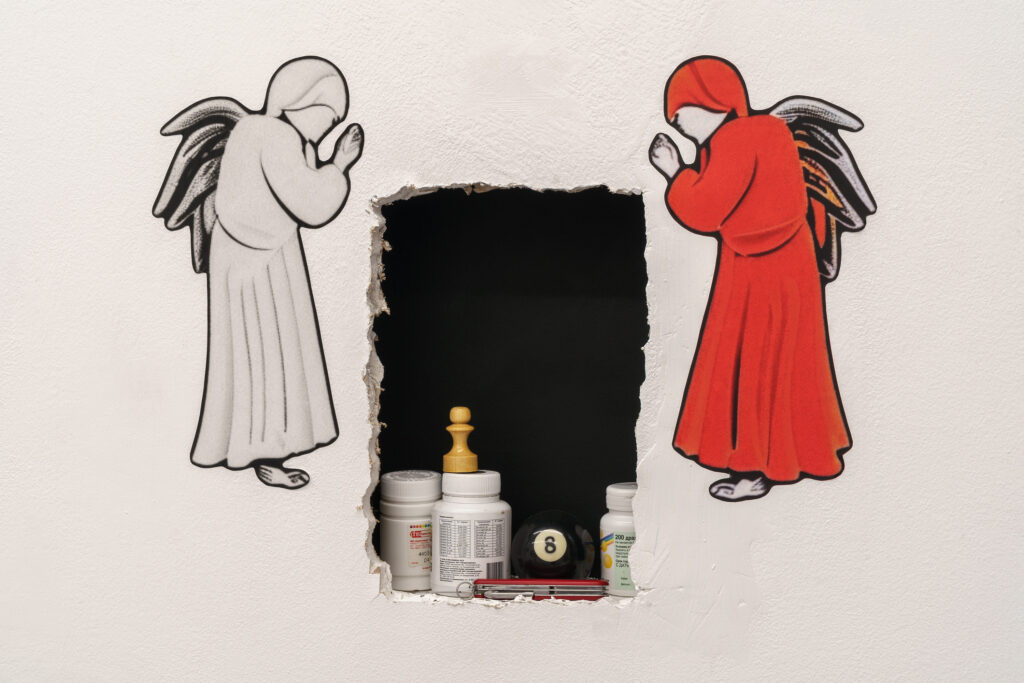





print on paper, 60 х 85 cm
